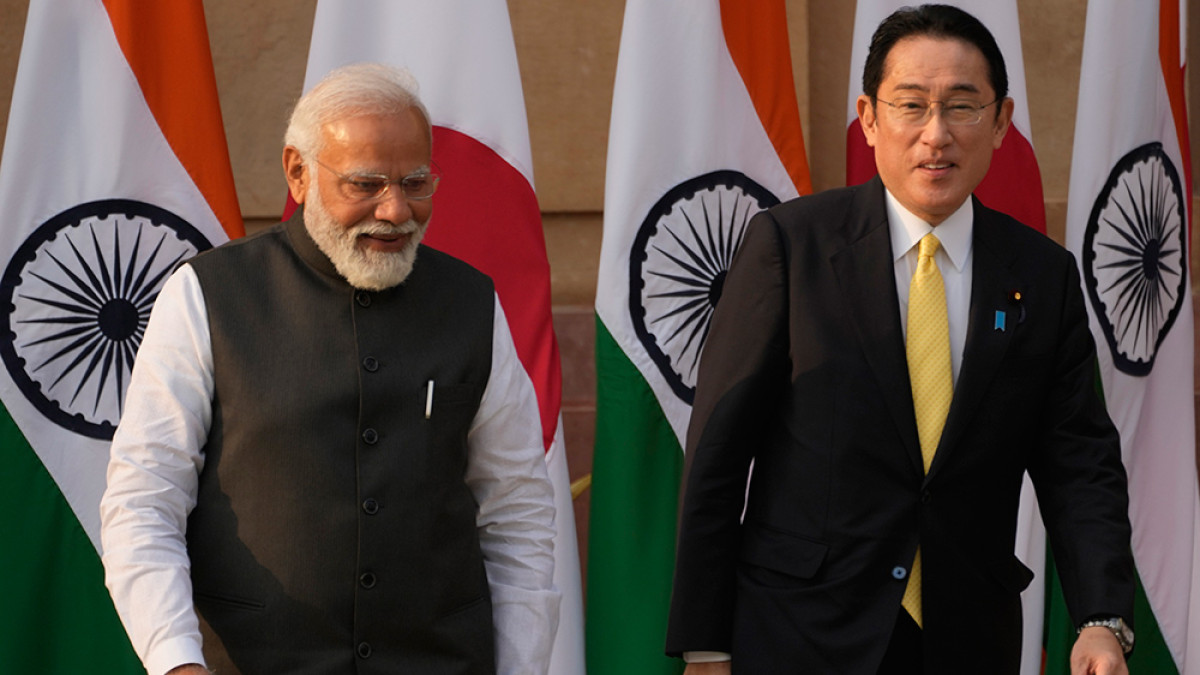
The visit of Japanese Prime Minister Fumio Kishida to India is happening right now. This is his first foreign trip since he took office in October last year and it shows how important India is for Japan’s vision of a free and open Indo-Pacific region.
What is the Indo-Pacific region?
The Indo-Pacific region is a term that refers to the vast area that stretches from the eastern coast of Africa to the western coast of America, encompassing the Indian Ocean and the Pacific Ocean. It is home to more than half of the world’s population and accounts for more than 60% of global GDP. It is also a region where many strategic challenges and opportunities exist, such as maritime security, climate change, trade and connectivity, terrorism and extremism, among others.
Why does Japan care about the Indo-Pacific region?
Japan has been one of the leading advocates of a free and open Indo-Pacific vision, which aims to promote peace, stability, prosperity and cooperation among all countries in the region based on shared values and principles such as democracy, the rule of law, human rights, and freedom of navigation. Japan believes that a free and open Indo-Pacific will benefit itself and other countries in Asia and beyond.
Japan has also been strengthening its ties with like-minded partners such as India, Australia and the US through various mechanisms such as bilateral dialogues, trilateral meetings and quadrilateral consultations (also known as Quad). These partnerships are meant to enhance coordination and cooperation on regional issues of common interest and concern.
Japanese Prime Minister Fumio Kishida (@kishida230) arrives in India.
Union Minister Rajeev Chandrasekhar (@Rajeev_GoI) welcomes Japan's PM in New Delhi.
Picture courtesy: Ministry of External Affairs pic.twitter.com/z7RNiiVmBl
— WION (@WIONews) March 20, 2023
What are the main objectives of Kishida’s visit to India?
Kishida’s visit to India is expected to boost bilateral relations between two major democracies in Asia that share many common interests and values. The two leaders will likely discuss ways to enhance cooperation in areas such as defense and security, trade and investment, high technologies, cyber security, digital transformation, green initiatives, and economic security.
They are also expected to exchange views on regional and global issues such as the situation in Afghanistan, Myanmar, North Korea, Iran, the Covid-19 pandemic, climate change, G20, G7, UN reforms, etc .
During a lecture at a leading think-tank in New Delhi, Kishida is also expected to unveil his ‘Free and Open Indo-Pacific Plan for Peace’. The plan will outline Japan’s efforts to further promote its vision of a free and open Indo-Pacific with an emphasis on providing patrol vessels and enhancing maritime law enforcement capabilities, as well as cyber security, digital and green initiatives, and economic security. The plan will also highlight India’s significance for the Indo-Pacific region.
What are the benefits of stronger ties between Japan
and India?
Japan and India have been enjoying cordial and friendly relations for decades, based on mutual respect, trust and understanding.
They have also been supporting each other’s development goals through various forms of assistance,
investment, technology transfer and capacity building.
They have also been collaborating on regional and multilateral platforms such as ASEAN , East Asia Summit, SAARC, BRICS, RCEP, APEC, etc.

